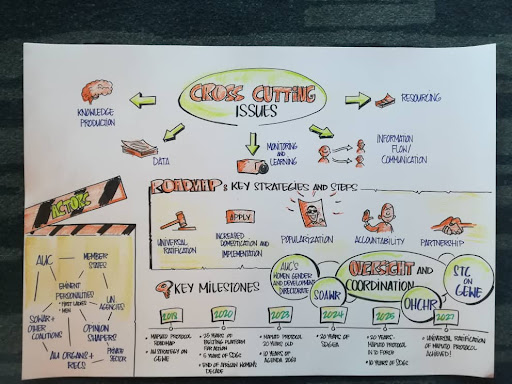
The road to 20
2003 – The African Charter on Human and Peoples’ Rights on the Rights of Women in Africa is adopted on 11 July 2023 in Maputo, Mozambique by the African Union (AU). The Protocol offers significant potential to guarantee the rights of women, but in order to come into force it needs to be ratified by at least 15 countries. Comoros became the first country to ratify it 30 days after its adoption.
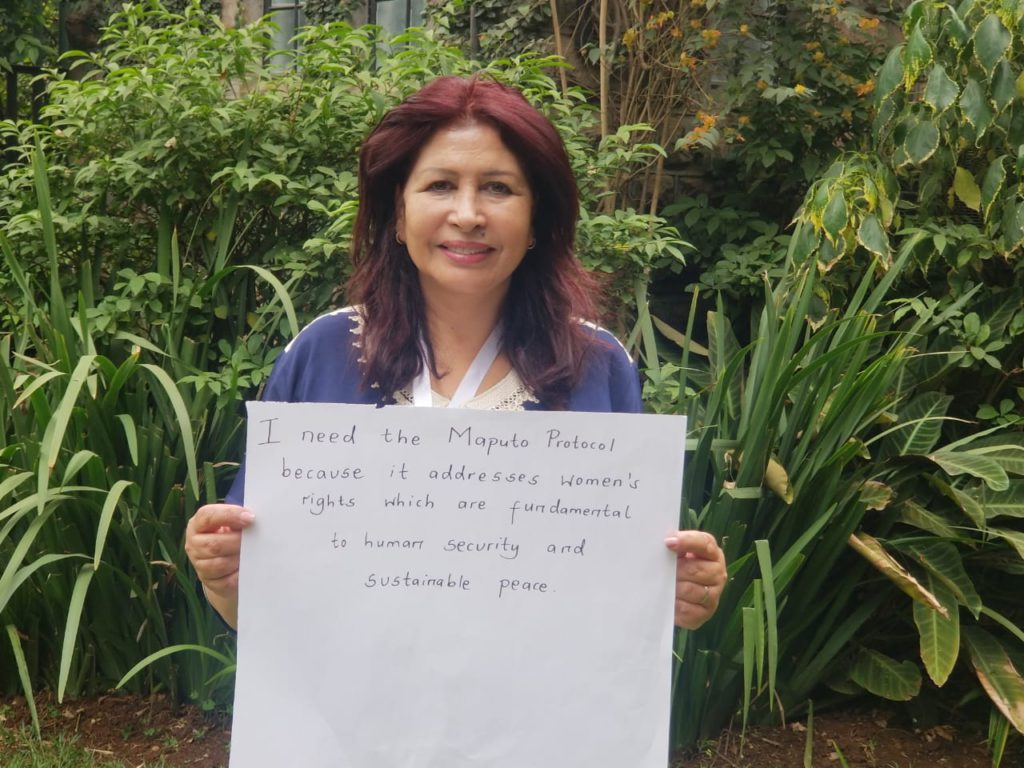
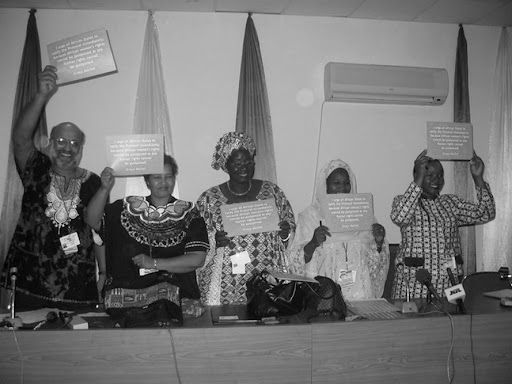
2005 – The Maputo Protocol secured 15 ratifications by AU Member states on 26, October 2005 ,meaning the Protocol enters into force on 25th November of the same year after 28 months, becoming the fastest human rights instrument to come into force in the history of OAU/AU.
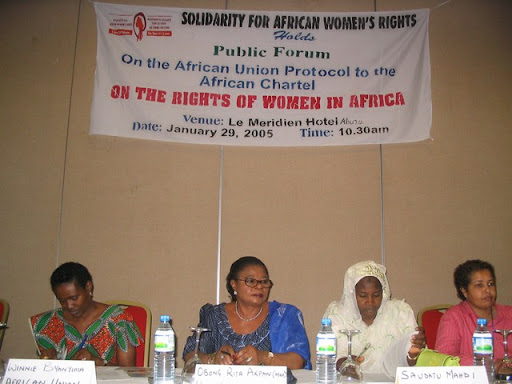
2007 – Over 23 countries out of the 54 AU member states have signed and ratified the protocol namely; Cape Verde, Comoros, Lesotho, Libya,Namibia, Benin, Djibouti, Gambia, Mali, Malawi, Mozambique, Mauritania, Nigeria, Angola, Burkina Faso, Ghana, Seychelles, Tanzania, Zambia, Rwanda, Senegal, South Africa and Togo.
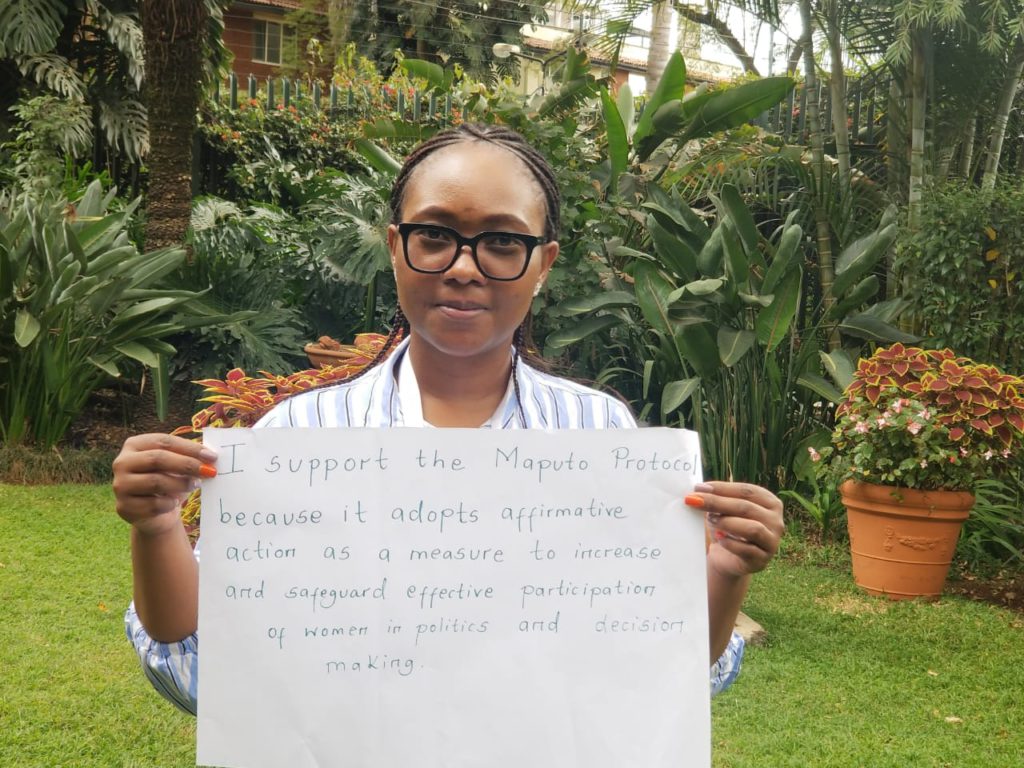
2008 – SOAWR develops ‘ A Guide to Using the Protocol on the Rights of Women in Africa’ available in Arabic, English, French and Portuguese and conducted technical trainings for legal practitioners across 31 member countries notably: Angola, Benin, Botswana, Burkina Faso, Cameroon, Cape Verde, Cote d’Ivoire, DRC, Djibouti, Ethiopia, Gabon, Gambia, Ghana, Kenya, Liberia, Lesotho, Mali, Malawi, Mozambique, Mauritania, Namibia, Nigeria, Senegal, Sierra Leone, South Africa, Sudan, Swaziland, Tanzania, Togo, Zambia and Zimbabwe. Over 6 additional countries ratified the Protocol during this phase: Democratic Republic of Congo, Guinea Bissau, Kenya, Liberia, Uganda, and Zimbabwe bringing the total number to 29 countries.
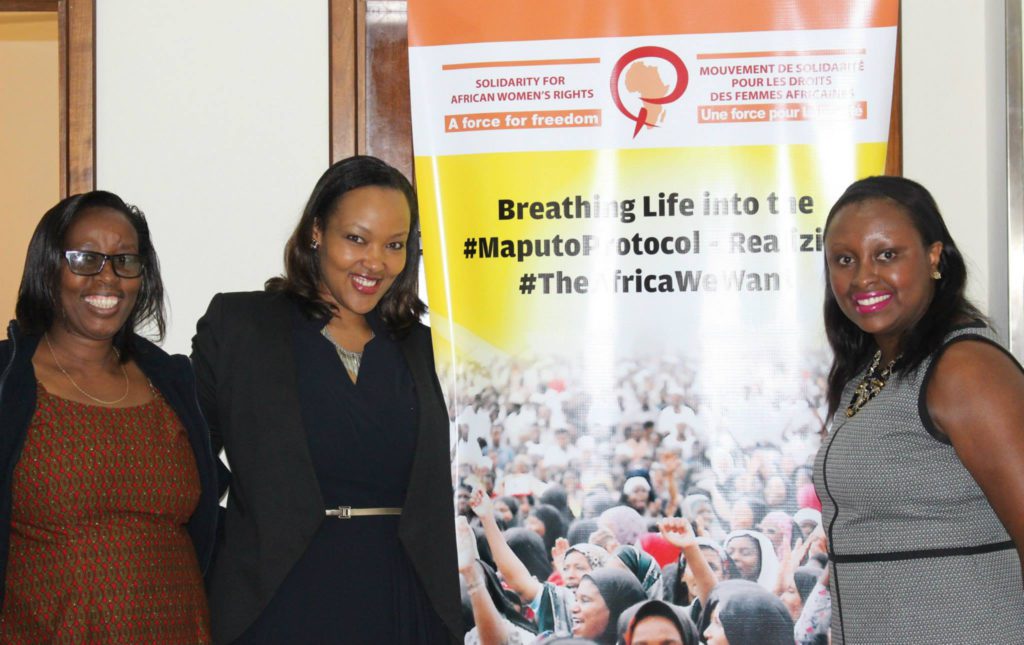
2010 – The AU officially launches the African Women’s Decade (AWD) 2010-2020 to advance gender equality by accelerating the implementation of Dakar, Beijing and the AU Assembly Decisions on gender equality and women’s empowerment on the international Day for Rural Women on October 15, 2010.
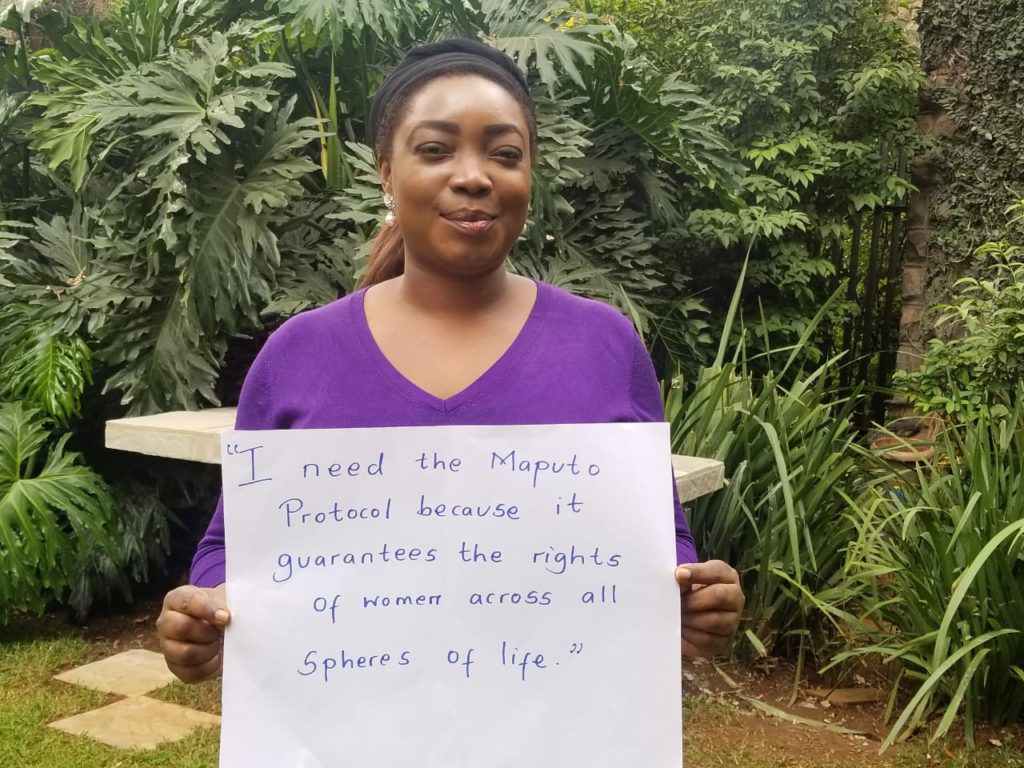
2011 – The African Commission on Human and Peoples’ Rights (ACHPR) adopts reporting guidelines on the Maputo Protocol. SOAWR through its member – Centre for Human Rights, University of Pretoria (CHR) supports the African Commission on Human and Peoples’ Rights (ACHPR) to develop reporting guidelines on measures taken to advance the Protocol at a country level.
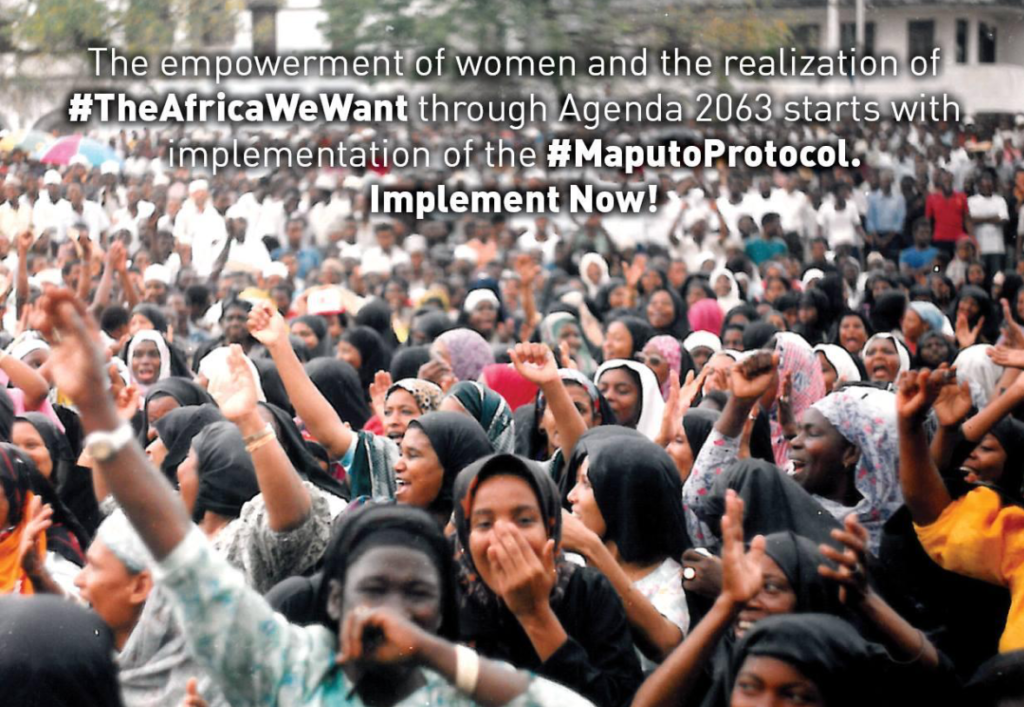
2012 – SOAWR partners with the Special Rapporteur on the Rights of Women in Africa to offer training on guidelines on reporting on the Protocol as well as disseminate copies of the guidelines to the AU in 2012.

2013 – By the 10th anniversary of the Protocol, 36 out of 54 member states of the African Union (AU) have so far ratified the Protocol, a clear victory for SOAWR who over the years had tirelessly mobilised and worked to achieve this goal.
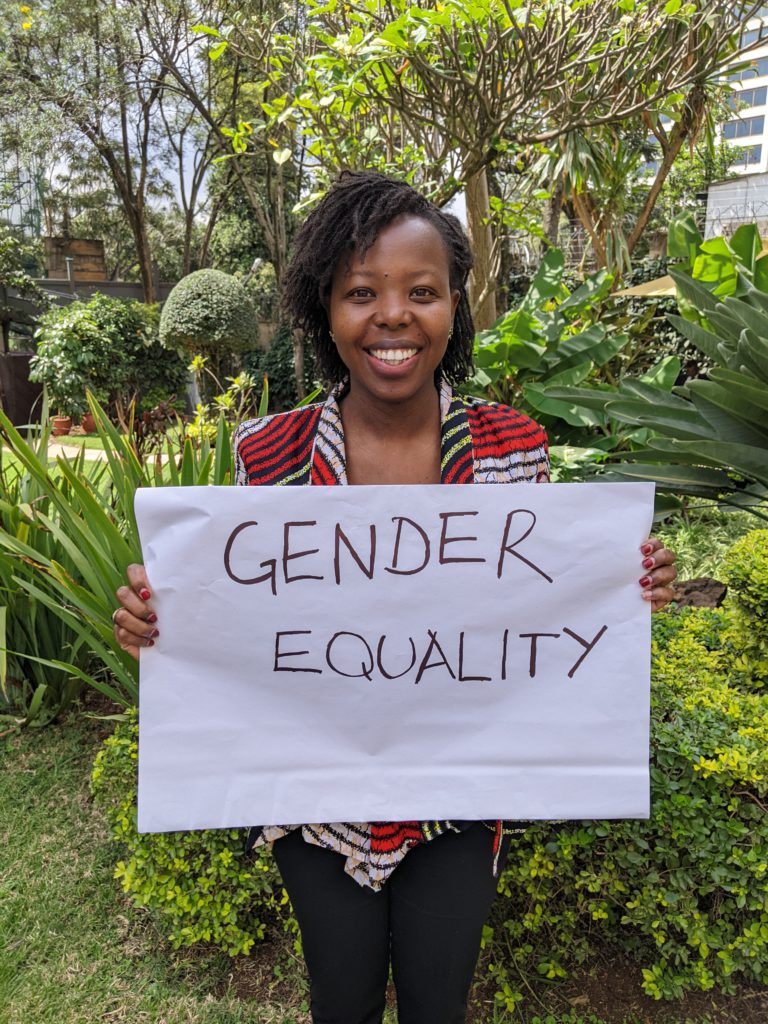
2015 – The first time the African Union, AU declared “Year of Women’s Empowerment and Development Towards Africa’s Agenda 2063” as the theme of the year.
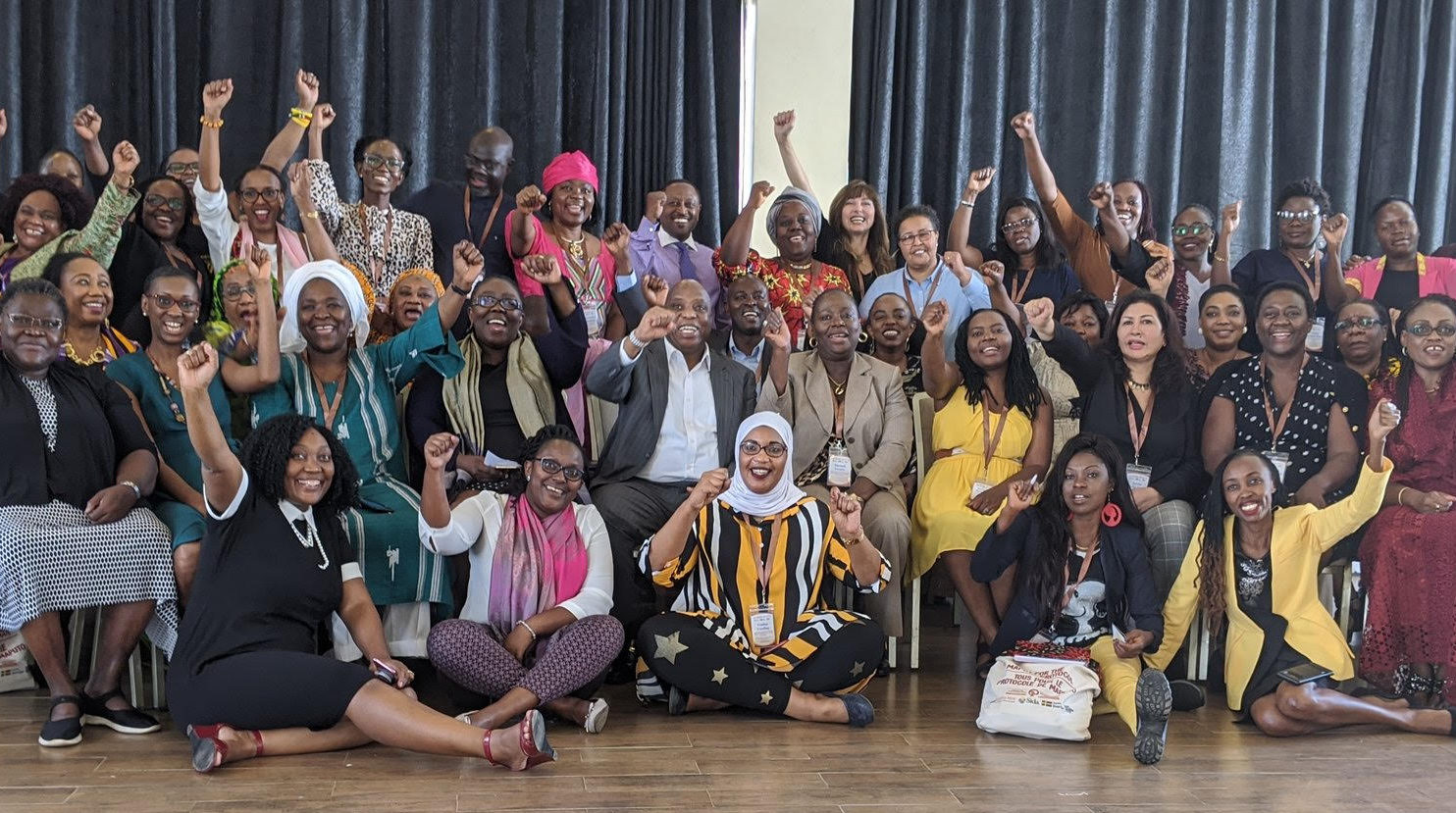
2016 – The second consecutive year in which the African Union, AU declared ‘‘ the Africa Year of Human Rights, with a focus on the Rights of Women.’’
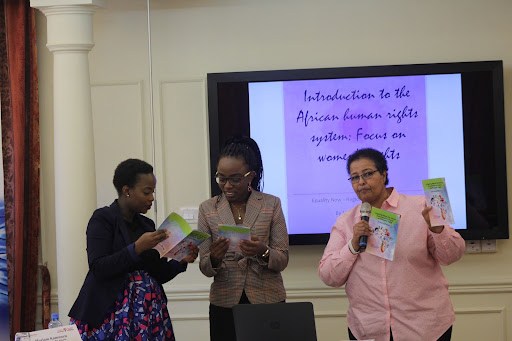
2017 – 36 countries have ratified the protocol, including all states in Eastern Africa region save for Eritrea, Ethiopia, Sudan, and South Sudan.
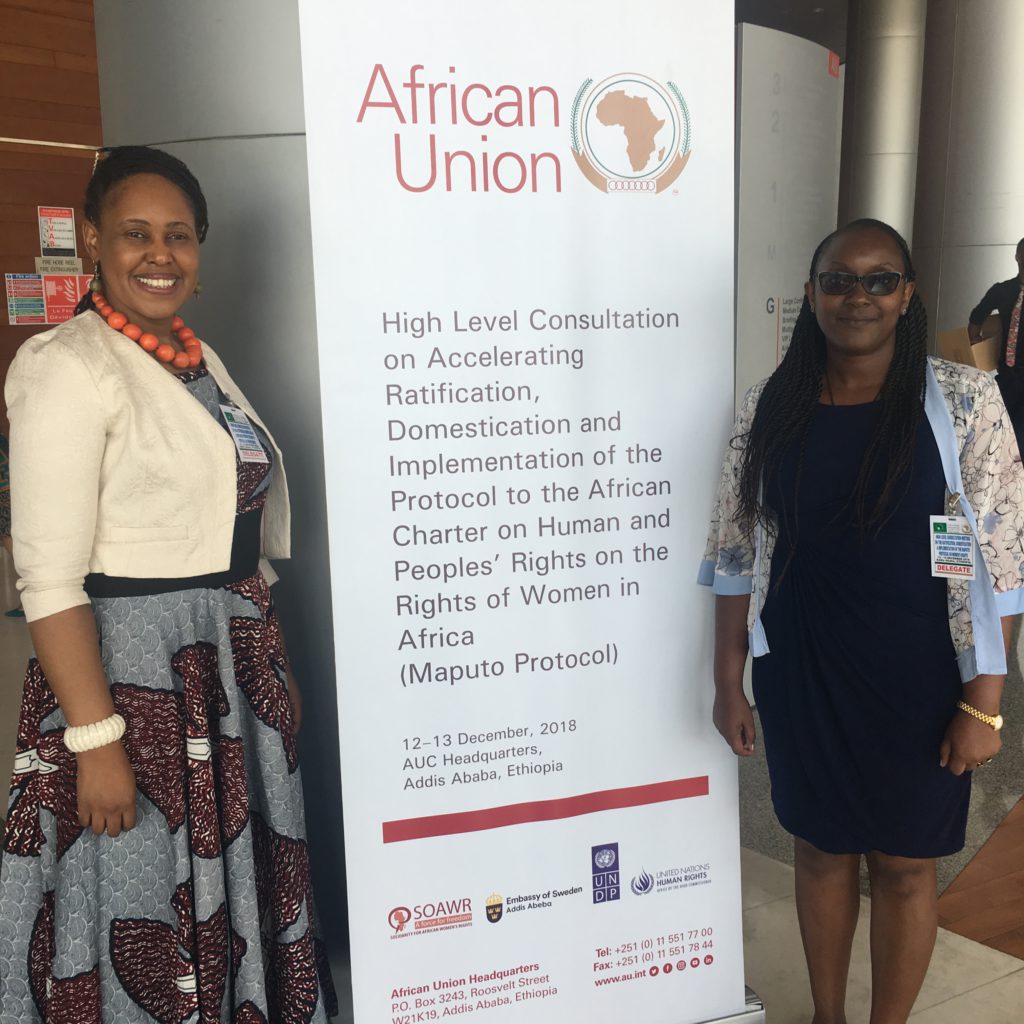
2019 – By this year, out of the 55 member countries in the African Union, 49 have signed the protocol and 42 have ratified and deposited the protocol; Algeria, Angola, Benin, Burkina Faso, Cameroon, Cape Verde, Comoros, Congo, Cote d’Ivoire, Democratic Republic of Congo, Djibouti, Ethiopia, Equatorial Guinea, Gabon, Gambia, Ghana, Guinea Bissau, Guinea, Lesotho, Liberia, Libya, Kenya, Mali, Malawi, Mauritius, Mozambique, Mauritania, Namibia, Nigeria, Rwanda, Sao Tome & Principe, Senegal, Seychelles, Sierra Leone, South Africa, Tanzania, Togo, Tunisia, Uganda, Swaziland (Eswatini),Zambia and Zimbabwe.
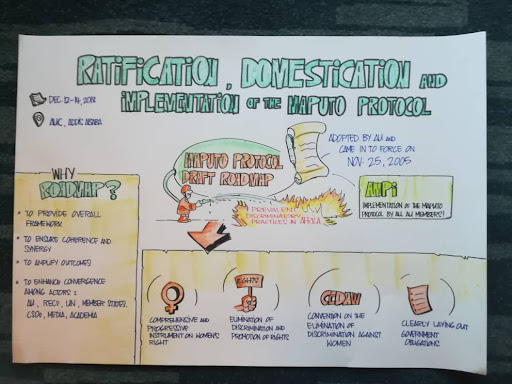
2020 – The AU’s aspirations for universal ratification of the Maputo Protocol by all 55 Member States.13 countries not yet signed, ratified, and domesticated the Protocol namely: Botswana, Burundi, Central African Republic, Chad, Egypt, Eritrea, Madagascar, Morocco, Niger, Sahrawi Arab Democratic Republic, Somalia, South Sudan and Sudan. The AU also introduces the Maputo Protocol Scorecard and index to monitor implementation of Women Rights among AU member states.
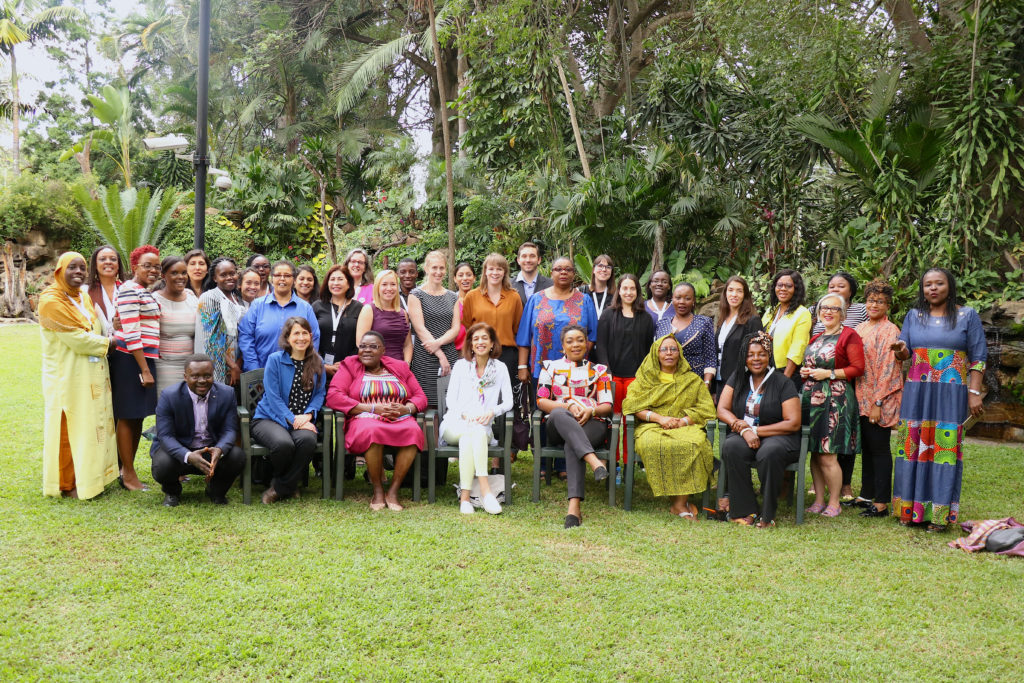
2023 – Maputo Protocol commemorates its 20th Anniversary with a retrospect of the journey towards promoting women rights in Africa. Until all states have ratified the Protocol without reservation, women’s and girls’ rights across Africa will remain at risk.
